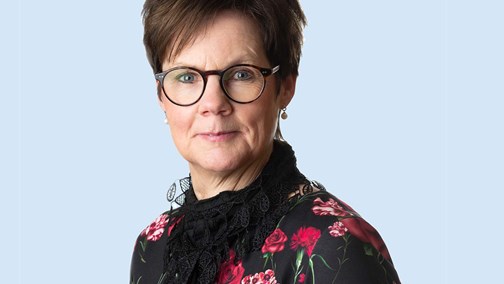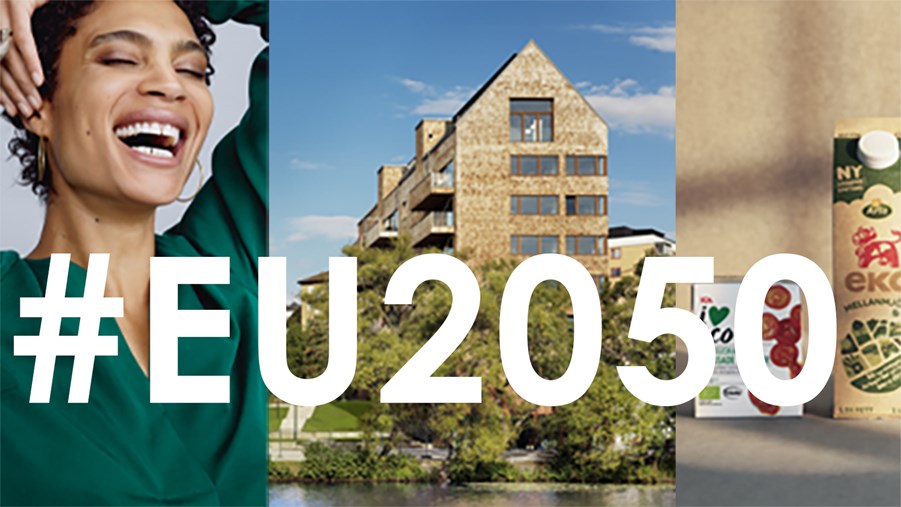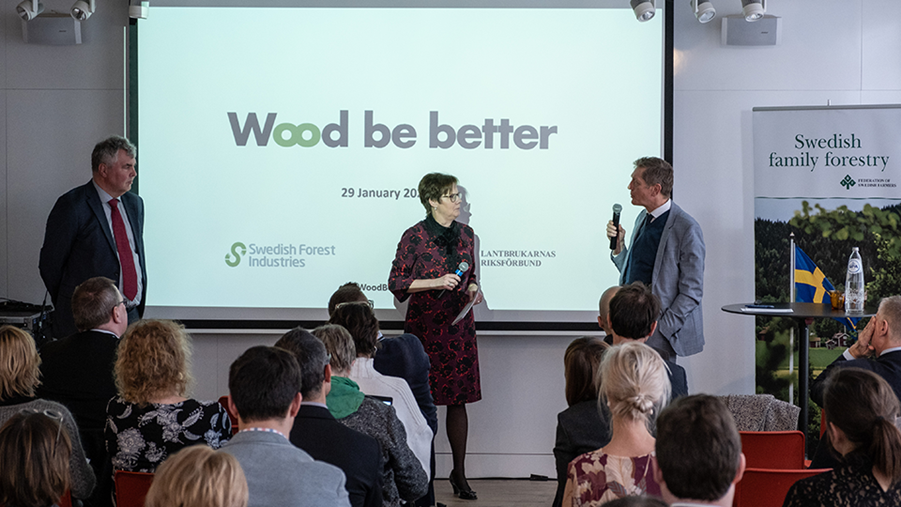
On 26 May, a live event was hosted by Wood Be Better, the Brussels based network for debate on topics of importance for the Swedish forest-based sector. Due to the Corona pandemic, the event was this time broadcasted from Stockholm and discussions were held in Swedish.
The network's four hosts, all of them Swedish MEPs, agreed that Europe's recovery after the Corona pandemic must be green and that the objectives of the European Green Deal must be fulfilled.
Erik Bergkvist (S&D): We must not waste the opportunities that the crisis represents to push for a green transition of Europe. Let's utilize the structural transformation that always takes place after a crisis. At the same time, in my political group in the Parliament, there is a legitimate concern that if we do not reduce unemployment, it will be a breeding ground for populist parties that are not interested in green recovery. So economic recovery and green change must go hand in hand.
Fredrick Federley (RENEW): When we now vigorously restart the economy, let's not put our money in the coal and oil economy of the 1970s, but instead into the new, advanced green economy. For the forest-based sector, there are huge opportunities, but we must assure that EU policies facilitate – not restrain – the management of our own forests. We must also put emphasis on material substitution to assure that the policy perspective on forests moves beyond carbon sinks.
Pär Holmgren (Greens): Let's use the crisis to achieve transformation and on this, I feel strong agreement within the EU on the overall need for sustainable change. Then, at the end of the day, we in the Green group will always ask for more to achieve faster and further radical change.
Jessica Polfjärd (EPP): It comes without saying that that we must achieve green and economic growth. The green economy shall be part of the EU's recovery package. I do not, however, agree with those who claim that today's experience is the best for the climate. The effects of the crisis are not favorable for the people, the economy or the climate.
Forests are vital for climate and biodiversity
Fredrick Federley (RENEW): We get more and more forest in Europe every year. It's easy to miss this fact and think that we are experiencing the same deforestation issues as in the Amazon. When the EU's new Biodiversity Strategy is turned into more precise policy, we must from the Swedish perspective emphasize that we protect more forest area than previously, that we have more forest than ever before and that we, at the same time, manage to harvest at a high rate . This is possible thanks to responsible forest management. We must be able to do all of this as well as manage biodiversity and address climate change. It's all about finding the right balance.
Pär Holmgren (Greens): In the Green group, Swedish and Finnish MEPs have a slightly different view than many others. For example, while the Germans only want to focus on protection, we still want to see some degree of productive forest management, but it must be long-term sustainable. We need to look at biodiversity more generally, what we broadly call ecosystem services, and manage them in the best possible way. From a climate perspective, maximizing the uptake of carbon is important. Consequently, we need to harvest timber and use for wood construction, thereby storing carbon. But it is important to find the balance.
Jessica Polfjärd (EPP): The Biodiversity Strategy defines an ambition to plant 3 billion additional trees in Europe by 2030. This is easy to say, but you need a plan for how the trees are to be managed and who should pay for that. Planting trees in big cities is not the solution, possibly a complement. What we really need to discuss is how we maximize the climate benefit from forests. In the EU, we often quote the Swedish example that it is possible to combine the objectives of production and biodiversity. It looks, however, very different between Member States, as we have different conditions, and this is a challenge.
Erik Bergkvist (S&D): In Sweden, we carry out long-term sustainable forest management, from which the rest of the world has a lot to learn. Climate change will, however, require management to be adapted and the measures will by definition be local. Therefore, common management practices within the EU will be very difficult to achieve. Sustainable Swedish forest management is based on the fact that we have many committed owners, who develop forestry and ecosystem services and who are in their forest on a daily basis and see opportunities. No governmental authorities can do this equally well. In Member States with only state forest ownership, this can be a dilemma, as the same development work is not done there. When talking about material substitution, this requires dynamics and committed people and here Sweden can lead by example.
Building confidence and agreeing on definitions
When asked to conclude their main take-away from the discussions in one word, representatives from the forest-based sector said:
Karin Perers, President of Mellanskog, one of Sweden's largest forest owner associations: After having listened carefully and responsively, I say "confidence". The MEPs possess a great deal of knowledge about Swedish forest management, how growing forests absorb carbon dioxide, the possibilities by material substitution and the benefit of Swedish forest ownership and how its diversity, also favors biodiversity. I believe that there is an opportunity for the MEPs to build confidence for Swedish forest management in Brussels.
Björn Lyngfelt, Vice President Communications at SCA, Europe's largest private forest owner and a major producer of sawn timber, pulp, paper for packaging and publication and renewable energy: I first intended to say "unity", but I think I better complement what Karin just said by instead stating "definitions". In the policy debate, we are dealing with a lot of claims, a lot of numbers, not least in the Biodiversity Strategy. The answer is 30 percent, but what is the question? We will need to spend a lot of time and effort to ensure that the wild numbers end up in a context where they make sense and are applicable in Member States. After all, working with biodiversity is local and functional - polar bears cannot be protected by carrying out measures in Portugal.


